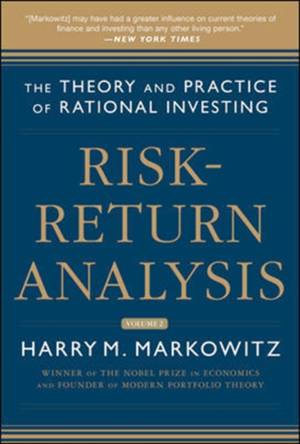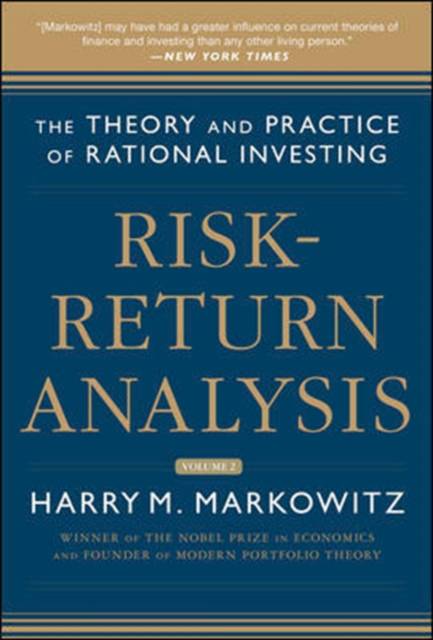
- Retrait gratuit dans votre magasin Club
- 7.000.000 titres dans notre catalogue
- Payer en toute sécurité
- Toujours un magasin près de chez vous
- Retrait gratuit dans votre magasin Club
- 7.000.0000 titres dans notre catalogue
- Payer en toute sécurité
- Toujours un magasin près de chez vous
Risk-Return Analysis, Volume 2: The Theory and Practice of Rational Investing
Harry M MarkowitzDescription
The Nobel Prize-winning Father of Modern Portfolio Theory returns with new insights on his classic work to help you build a lasting portfolio today
Contemporary investing as we know it would not exist without these two words: "Portfolio selection." Though it may not seem revolutionary today, the concept of examining and purchasing many diverse stocks--creating a portfolio--changed the face of finance when Harry M. Markowitz devised the idea in 1952.
In the past six decades, Markowitz has risen to international acclaim as the father of Modern Portfolio Theory (MPT), with his evaluation of the impact of asset risk, diversification, and correlation in the risk-return tradeoff. In defending the idea that portfolio risk was essential to strategic asset growth, he showed the world how to invest for the long-run in the face of any economy.
In Risk Return Analysis, this groundbreaking four-book series, the legendary economist and Nobel Laureate returns to revisit his masterpiece theory, discuss its developments, and prove its vitality in the ever-changing global economy. Volume 2 picks up where the first volume left off, with Markowitz's personal reflections and current strategies. In this volume, Markowitz focuses on the relationship between single-period choices--now--and longer run goals. He discusses dynamic systems and models, the asset allocation "glide-path," inter-generational investment needs, and financial decision support systems.
Written with both the academic and the practitioner in mind, this richly illustrated volume provides investors, economists, and financial advisors with a refined look at MPT, highlighting the rational decision-making and probability beliefs that are essential to creating and maintaining a successful portfolio today.
Spécifications
Parties prenantes
- Auteur(s) :
- Editeur:
Contenu
- Nombre de pages :
- 400
- Langue:
- Anglais
Caractéristiques
- EAN:
- 9780071830096
- Date de parution :
- 23-05-16
- Format:
- Livre relié
- Format numérique:
- Genaaid
- Dimensions :
- 152 mm x 231 mm
- Poids :
- 635 g

Les avis
Nous publions uniquement les avis qui respectent les conditions requises. Consultez nos conditions pour les avis.






